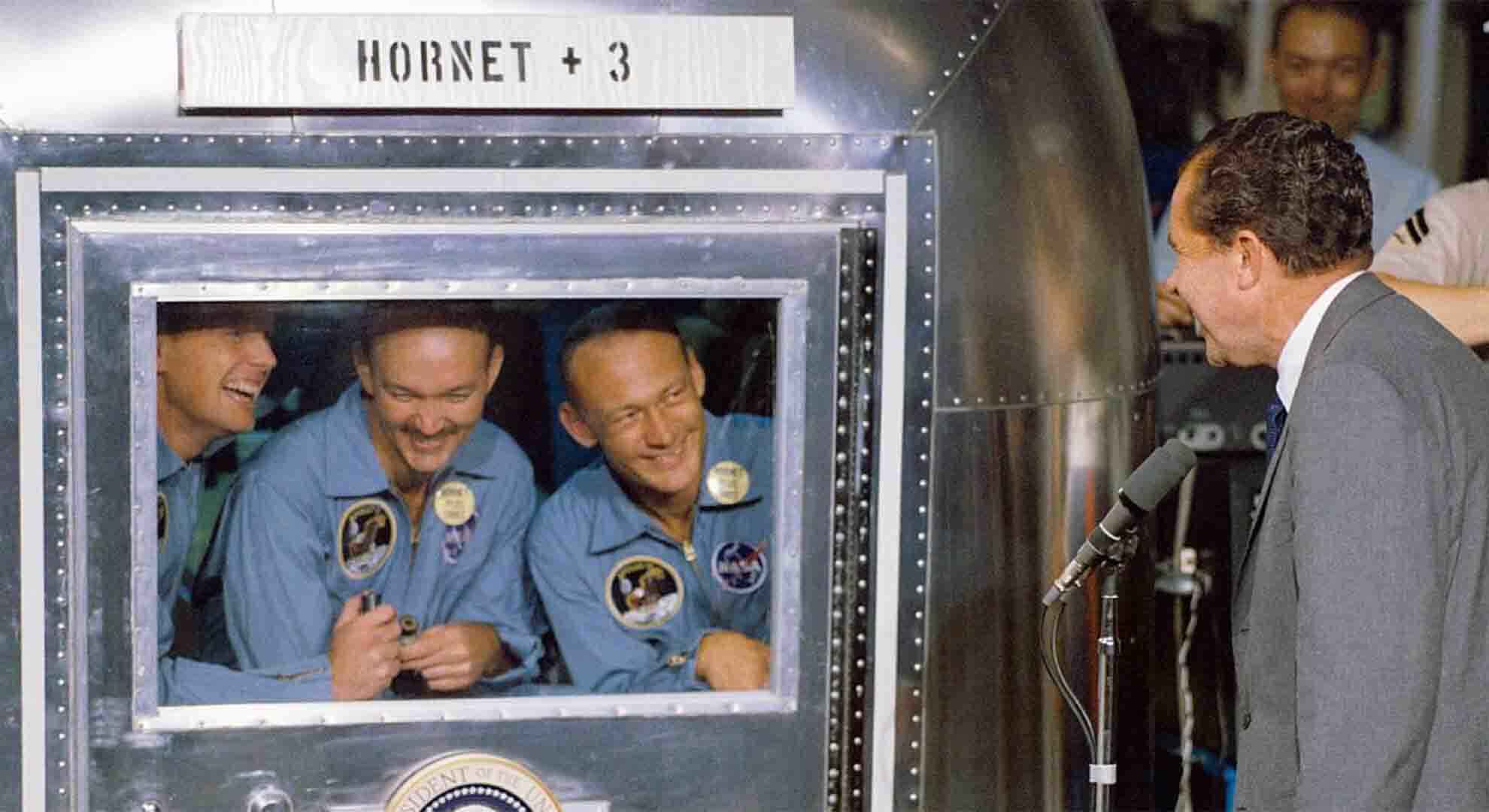To Space and Back
How exploring space can help us to focus on Earth
“The Earth is the cradle of humankind, but we cannot stay in the cradle forever.” Today, this quote from Russian rocket scientist Konstantin Tsiolkovsky (1857-1935) resounds more powerfully than ever. Many private companies and an increasing number of countries are preparing to expand human presence beyond the Earth’s surface and atmosphere. Staying alive in an environment as hostile and complex as outer space will help us face the challenges of exponential human growth. From water use and recycling to the monitoring of air pollution, improving the conditions of manned flights—for science and tourism alike—will help us overcome the challenges we face in this spacecraft we inhabit and call Earth.
When personal experience leads to action
When I met Edward Norton, the American actor famous for his roles in films such as Fight Club or American History X, I never would have guessed what his true passion was. Aside from being an actor for film and theater, his aim was to solve the pollution problems caused by wastewater. Witnessing the destruction of marine diversity in Chesapeake Bay, in the state of Virginia where he grew up, drove him to research the issue. He found out that the human and environmental suffering generated by not treating human waste properly was huge. Now he combines his work as an actor with his role at the helm of a company devoted to solving this problem worldwide.
When you are in a spaceship, you also have to manage waste. If you are on a long-term mission, such as a lunar base or a manned flight to Mars, recycling is essential. This type of outer space mission may seem like a strictly technical feat, but it is precisely solving challenges like these, which strike us as impossible, that we find new solutions which we can later apply to our everyday lives. That is how human evolution has always unfolded.
“I am convinced that we will see countless improvements in people’s quality of life as a result of space exploration.”
Learning from the space race
We could ask ourselves what our world would be like if, after Neil Armstrong perched a flag on the Moon, Richard Nixon had decided to withdraw from the Vietnam War and, with the resources he saved, continued the original plan of human expansion throughout the solar system developed by the father of modern astronautics, the German scientist Wernher Von Braun.

If placing a flag on the Moon brought about a surge of innovations (finite element calculations, new alloys, communications satellites, digital electronics, and much more) it is reasonable to ask ourselves: What would we have discovered if that program had not shut down?
We are living in a fascinating time: after decades of slow progress, the outer space race is picking up momentum again. The governments of emerging countries such as India and private companies, like SpaceX and Virgin Galactic from the United States or Spain’s Zero 2 Infinity, are taking the necessary steps to turn outer space into a realm where humans can invent, launch projects, create, and live. Expanding human experience and economic activity beyond the surface of the Earth happens to be the best way to protect our planet. From the perspective of space, things are better understood. Meteosat satellites enable us to come up with more accurate weather forecasts and GPS devices help us find our way around, but that’s only the beginning. I am convinced that we will see countless improvements in people’s quality of life as a result of space exploration.

Even outer space tourism, which may initially strike us as frivolous, will help raise awareness of our needs among the world’s most influential people. When these cosmic tourists, who will inevitably be wealthy individuals like high-ranking executives, sports stars, or famous actors, set eyes upon the thin blue layer of the atmosphere that protects us from the cold bleakness of outer space, they will surely gain a better understanding of the problems facing our planet, and will act more urgently to find solutions.
My friend the writer Frank White interviewed a large number of astronauts and compiled their voices in his book The Overview Effect. In it we see how most of the interviewees developed greater empathy after traveling into space. Hopefully these influential people will also become more empathetic towards the planet, and will make the effort to save the planet one of their life goals.
Main image: View of the horizon from the Zero 2 Infinity’s Bloon prototype at an altitutde of 32 kilometers.
